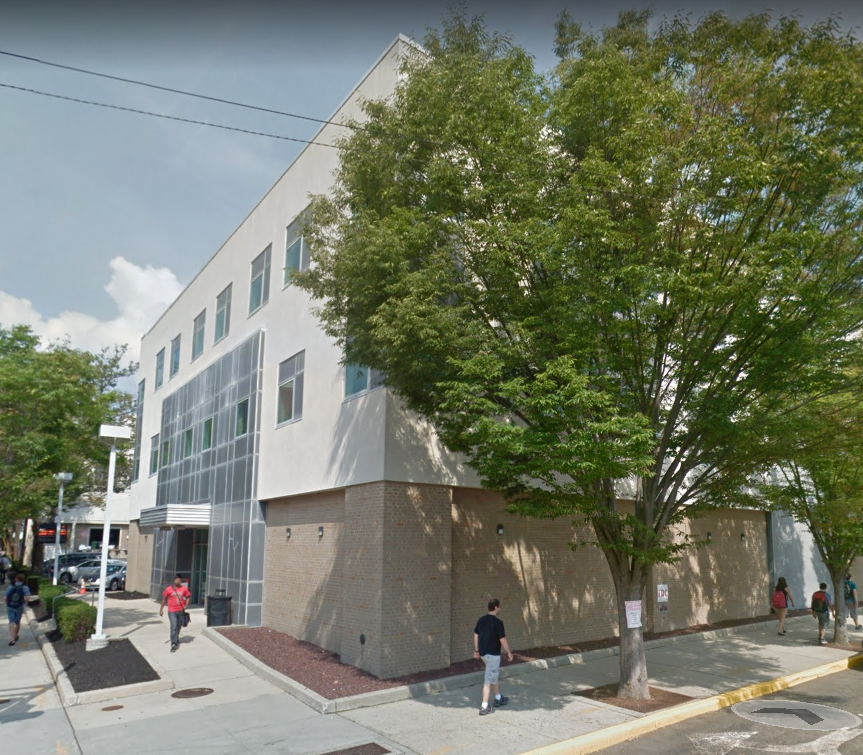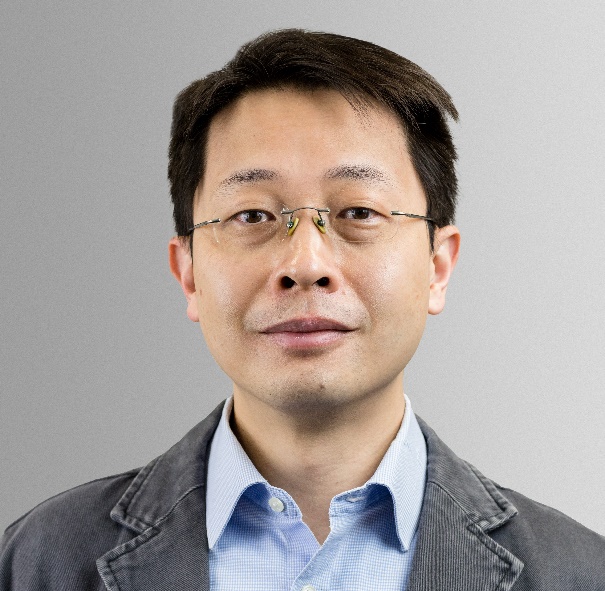|
Green Technology Research and Training Laboratory |
|
||||||||||||||
|
Sensor Research Laboratory |
|
||||||||||||||
|
HOME |
|||||||||||||||
|
|
|
|
|
|
|
|
|
|
|
|
|
||||
|
|
|
|
|
|
|
|
|
|
|
|
|
||||
|
|
|
|
|
|
|
|
|
|
|
|
|
||||
|
|
Tweets by PhilipPongNJIT | ||||||||||||||
|
|
|
|
|
|
|
|
|
|
|
|
|
||||
|
|
|
|
|
|
|
|
|
|
|
|
|
||||
|
|
The Green Technology Research and Training
Laboratory and Sensor Research Laboratory work on sensors, smart
grid and smart city to enable green technologies. We endeavor to advance energy
efficiency and renewable energy by developing sensors and sensing systems
together with machine learning and Internet-of-Things to establish
intelligent sensing platforms that acts as important parts of cyber-physical
systems such as power grids or autonomous systems. Our research programs aim
to achieve predictive maintenance and anomaly detection to safeguard the
uninterrupted operations of critical energy infrastructures. By continuously
monitoring and analyzing available machinery data to detect early signs of
degradation or failures, our technologies can effectively avoid damaging
malfunctions, reduce downtime, increase efficiency, and enhance industry
competitiveness. Our training programs nurture future engineers, scientists
and researchers for the Age of Clean Energy and the Age of Sensors. The core
activities of the Laboratories include fundamental scientific studies,
practical engineering projects, technology commercialization, community
outreach and STEM education to K-12 students and under-represented students. |
|
|
||||||||||||
|
|
|
|
|
|
|
|
|
|
|
|
|
||||
|
|
|
|
|
|
|
|
|
|
|
|
|
||||
|
|
|
|
|
|
|
|
|
|
|
|
|
||||
|
|
|
|
|
|
|
|
|
|
|
||||||
|
|
Philip W. T. Pong |
|
|
||||||||||||
|
|
|
|
|
||||||||||||
|
|
PhD, FIET, FInstP, FIMMM, FEI, FHKIE, FNS, SMIEEE, CEng, CPhys, R.P.E. |
|
|
||||||||||||
|
|
Chartered Energy Engineer |
|
|
||||||||||||
|
|
Associate Professor |
|
|
||||||||||||
|
|
Director - Green Technology Research and Training Laboratory, Sensor Research Laboratory |
|
|
||||||||||||
|
|
|
|
|
||||||||||||
|
|
ECEC 327, Department of Electrical and Computer Engineering, |
|
|
||||||||||||
|
|
New Jersey Institute of Technology, Newark, NJ 07102, United
States |
|
|
||||||||||||
|
|
|
|
|
||||||||||||
|
|
Email: philip.pong@njit.edu |
|
|
||||||||||||
|
|
Office phone: +1 973-596-3533 |
|
|
||||||||||||
|
|
|
|
|
|
|
|
|||||||||
|
|
|
|
|
|
|
|
|
|
|
|
|
||||
|
|
Philip
W. T. Pong received a B.Eng. from the
University of Hong Kong (HKU) in 2002 with 1st class honours. Then he studied
for a PhD in engineering at the University of Cambridge (2002-2005). He was a
postdoctoral researcher at the Magnetic Materials Group at the National
Institute of Standards and Technology (NIST) for three years. He started his
academic career at the University of Hong Kong, then he joined the NJIT in
2021. His research interest currently focuses on the development and
application of advanced sensing techniques based on electromagnetic sensors
in smart grid and smart city. Philip Pong is a Fellow of the Institution of
Engineering and Technology (FIET), a Fellow of the Institute of Physics
(FInstP), a Fellow of the Energy Institute (FEI), a Fellow of the Institute
of Materials, Minerals and Mining (FIMMM), a Fellow of the Hong Kong
Institution of Engineers (FHKIE), a Fellow of the NANOSMAT Society (FNS), a
chartered physicist (CPhys), a chartered electrical engineer (CEng), a
chartered energy engineer, a registered professional engineer (R.P.E. in
Electrical, Electronics, Energy), and a Senior Member of IEEE (SMIEEE). He
serves on the editorial boards for several IEEE and SCI journals. |
|
|
||||||||||||
|
|
|
|
|
|
|
|
|
|
|
|
|
||||
|
|
|
|
|
|
|
|
|
|
|
|
|
||||
|
|
|
|
|
|
|
|
|
|
|
|
|
||||
|
|
|
|
|
|
|
|
|
|
|
|
|
||||
|
|
Our Laboratories look for PhD/master students and
postdocs who are interested in sensor research. We also welcome visiting students/scholars/professors
for academic and research exchange and international collaboration.
Students/clubs plan to use sensors in contests and competitions may partner
with the Laboratory. Please contact Philip Pong for further discussion. |
|
|
||||||||||||
|
|
|
|
|
|
|
|
|
|
|
|
|
||||
|
|
|
|
|
|
|
|
|
|
|
|
|
||||
|
|
|
|
|
|
|
|
|
|
|
|
|
||||
|
|
|
|
|
|
|
|
|
|
|
|
|
||||
|
|
|
|
|
|
|
|
|
|
|
|
|
||||
|
|
|
|
|
|
|
|
|
|
|
|
|
||||
|
|
|
|
|
|
|
|
|
|
|
|
|
||||
|
|
|
|
|
|
|
|
|
|
|
|
|
||||
|
|
|
|
|
|
|
|
|
|
|
|
|
||||
|
|
|
|
|
|
|
|
|
|
|
|
|
||||
|
|
|
|
|
|
|
|
|
|
|
|
|
||||
|
|
|
|
|
|
|
|
|
|
|
|
|
||||


